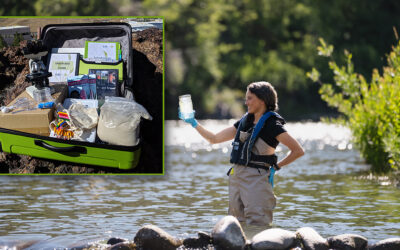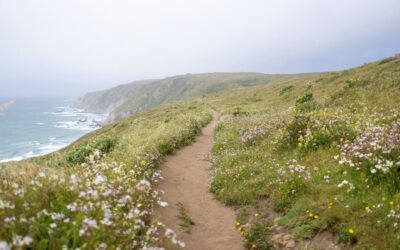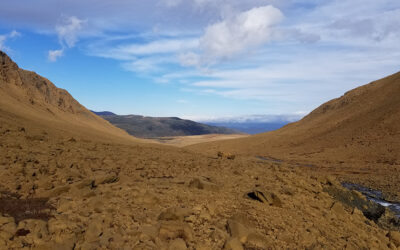Reposted from Lynker.com
RENO, Nev. –During the winter, a few degrees can make all the difference between digging your car out of a snowbank and rushing rivers overtopping their banks. Why? Winter storms at near-freezing
temperatures have notoriously fickle precipitation, with mixes of rain and snow. While the air temperature difference between the two may be slight, the real-world consequences can be huge.
What’s more, the computer models we use to predict weather and streamflow often struggle to predict whether rain or snow will fall when temperatures are right around 32°F. Satellites don’t do much better. What this means is that scientists need your help!
With NASA funding, a team from Lynker, the Desert Research Institute, and the University of Nevada, Reno are launching a citizen science project where volunteers like you can submit observations of rain, snow, and mixed precipitation via your smartphone, laptop, desktop, tablet, or any other device with a browser. We call it Mountain Rain or Snow and you can report from your backcountry adventures, winter drives (as long as you’re the passenger!), and even the comfort of your own home. Every observation is valuable!
As we grow the community of Mountain Rain or Snow volunteers, we will be better able to analyze patterns of rain and snow to improve satellite monitoring and model predictions. This info can then bring about better weather forecasts, more detailed knowledge of skiing conditions, improved avalanche risk assessments, and more robust understanding of the water stored in mountain snowpacks.
This winter we’re focusing our efforts on the following mountain regions. If you’re in one of these areas, text the region-specific keyword to the number provided. You’ll then get a link to the Mountain Rain or Snow web app and you’ll receive notifications of incoming winter storms in your area. You can opt out at any time.
● The Appalachians and Adirondacks of New England and New York – Text NorEaster to 855-909-0798
● The Cascades, Coast Range, and Klamath Mountains of Oregon – Text OregonRainOrSnow to 855-909-0798
● The Sierra Nevada of California and Nevada – Text WINTER to 855-909-0798
● The Rocky Mountains of Colorado – Text CORainSnow to 855-909-0798
If you don’t happen to find yourself in one of the above areas, don’t fret! We welcome observations from wherever you are. Anyone can submit an observation at any time via https://rainorsnow.app/ and you can check out our website for more information. For Mountain Rain or Snow questions, you can contact the project lead, Dr. Keith Jennings, at rainorsnow@lynker.com.
###
Lynker delivers innovative solutions to support global environmental sustainability and economic prosperity as a trusted partner to governments, communities, research institutions, and industry. We are passionate about what we do and the high value we provide to water resources management, hydrologic science, and conservation across the US and beyond. For more information, please visit https://www.lynker.com/.
The University of Nevada, Reno, is a public research university that is committed to the promise of a future powered by knowledge. Nevada’s land-grant university founded in 1874, the University serves 21,000 students. The University is a comprehensive, doctoral university, classified as an R1 institution with very high research activity by the Carnegie Classification of Institutions of Higher Education. Additionally, it has attained the prestigious “Carnegie Engaged” classification, reflecting its student and institutional impact on civic engagement and service, fostered by extensive community and statewide collaborations. More than $800 million in advanced labs, residence halls and facilities has been invested on campus since 2009. It is home to the University of Nevada, Reno School of Medicine and Wolf Pack Athletics, maintains a statewide outreach mission and presence through programs such as the University of Nevada, Reno Extension, Nevada Bureau of Mines and Geology, Small Business Development Center, Nevada Seismological Laboratory, and is part of the Nevada System of Higher Education. Through a commitment to world-improving research, student success and outreach benefiting the communities and businesses of Nevada, the University has impact across the state and around the world. For more information, visit www.unr.edu
The Desert Research Institute (DRI) is a recognized world leader in basic and applied environmental research. Committed to scientific excellence and integrity, DRI faculty, students who work alongside them, and staff have developed scientific knowledge and innovative technologies in research projects around the globe. Since 1959, DRI’s research has advanced scientific knowledge on topics ranging from humans’ impact on the environment to the environment’s impact on humans. DRI’s impactful science and inspiring solutions support Nevada’s diverse economy, provide science-based educational opportunities, and inform policymakers, business leaders, and community members. With campuses in Las Vegas and Reno, DRI serves as the non-profit research arm of the Nevada System of Higher Education. For more information, please visit www.dri.edu.


